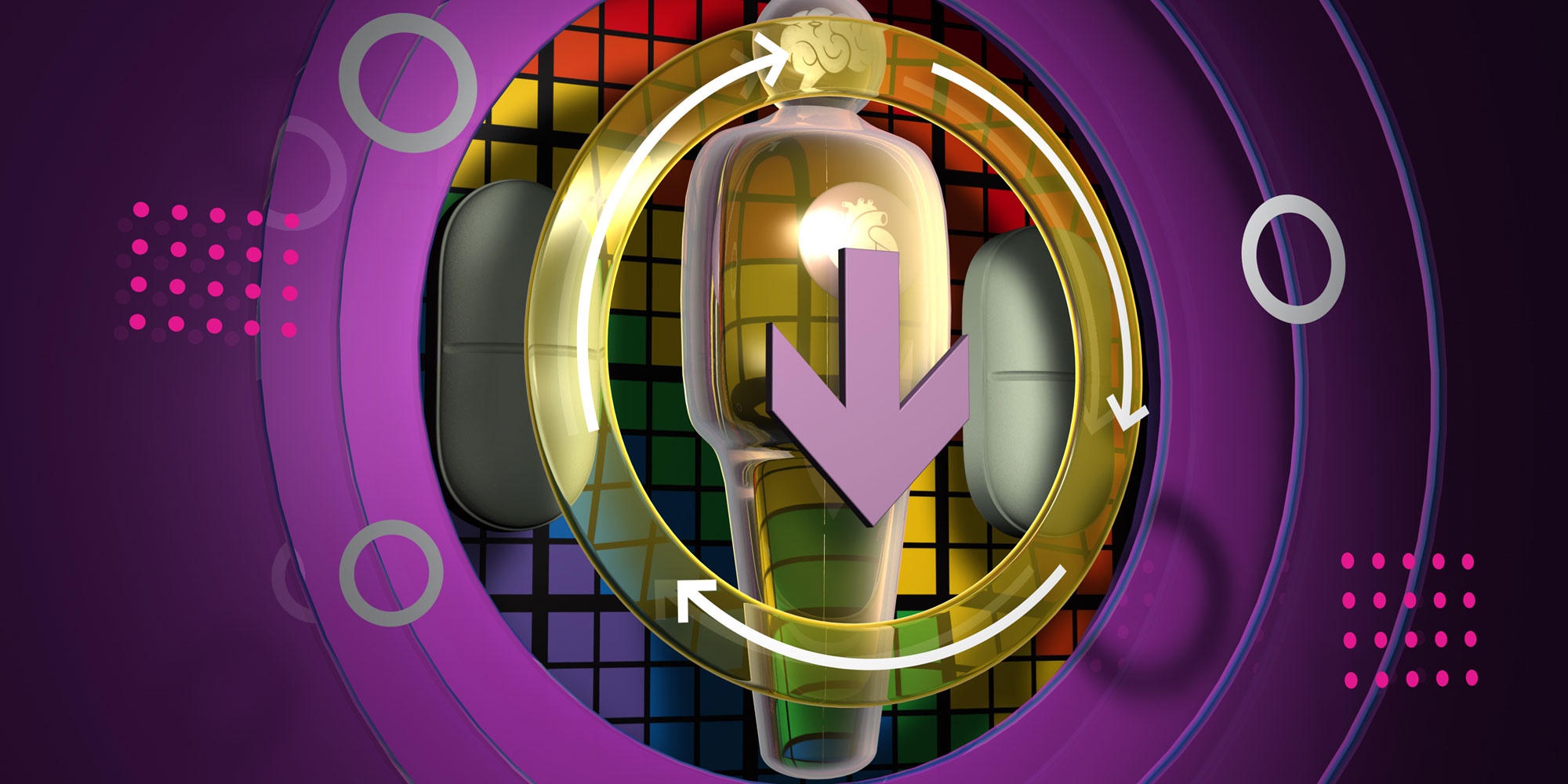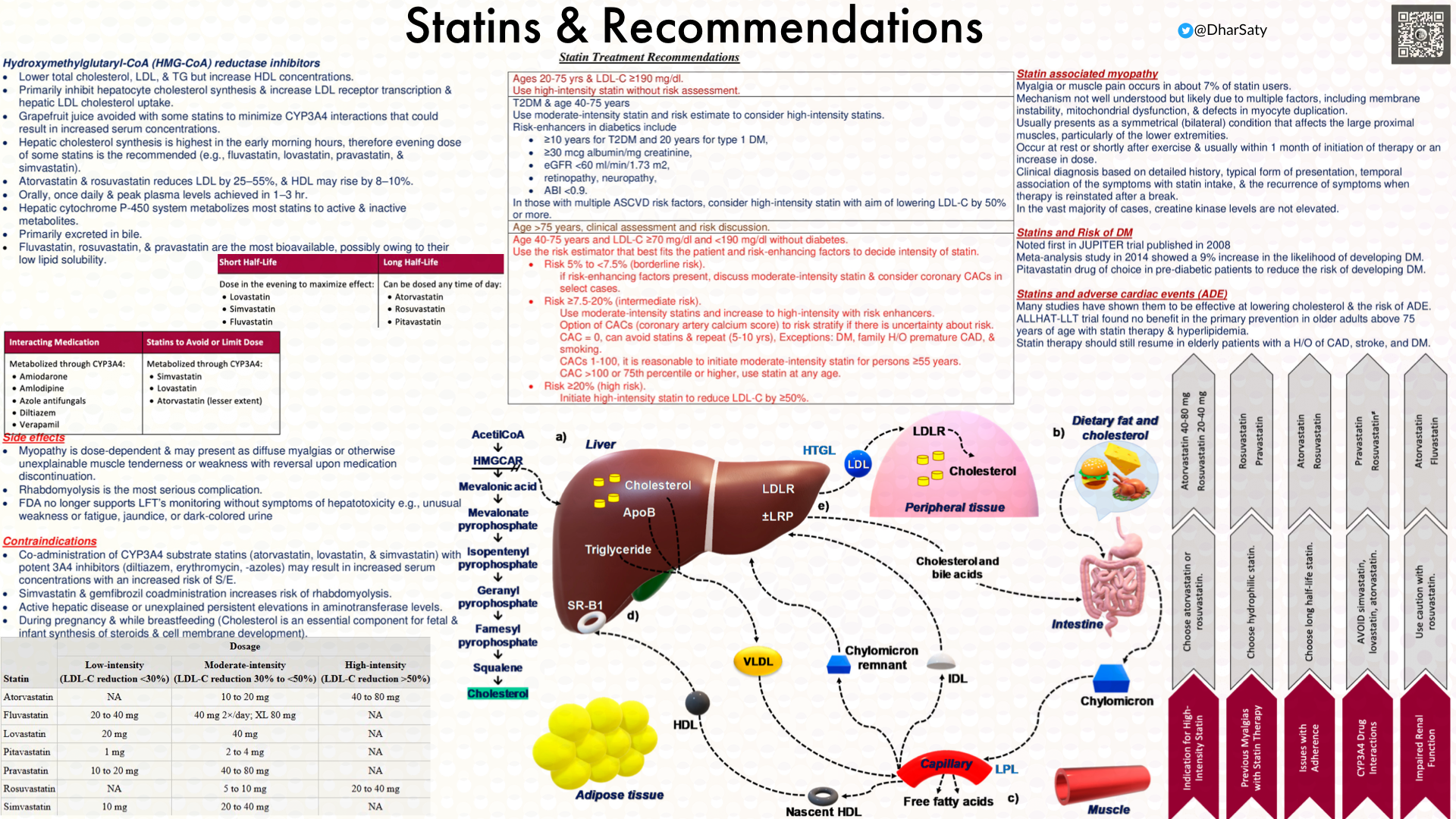
Key facts
- Statins are a group of prescription medicines used to lower cholesterol — there are many examples, including atorvastatin, rosuvastatin, simvastatin and pravastatin.
- They reduce how much cholesterol your body produces, so it doesn’t build up in your blood vessels.
- Statins can lower your risk of a heart attack or stroke and are recommended for anyone who is at high risk.
- To lower your risk, it’s important to maintain a healthy lifestyle as well as taking statins.
- With statins, there is a small risk of diabetes and a very small risk of serious muscle problems.
What are statins?
Statins are a group of prescription medicines used to lower cholesterol. They are recommended for people who are at a high risk of cardiovascular disease, such as heart attack and stroke.
Statins are the most effective type of cholesterol-lowering medicine available.
There are several different types of statins, including:
- atorvastatin
- rosuvastatin
- pravastatin
- simvastatin
How do statins work?
Statins lower the level of ‘bad’ cholesterol (known as low-density lipoprotein or LDL) in your blood. LDL cholesterol can build up in your blood vessels and block the blood flow to your heart or brain, leading to a heart attack or stroke.
Statins reduce how much cholesterol your liver makes. When your body needs to use cholesterol, it will take it from your blood vessels. This helps lower your risk of cardiovascular disease.
Who should take statins?
Anyone who is at a high risk of having a heart attack or stroke should take statins. This includes people who have already had a heart attack or stroke, or who have coronary heart disease.
This means that not everyone with high cholesterol should take statins — it depends on your overall cardiovascular risk. It also means that your doctor might prescribe statins even if your cholesterol is normal, if you are at high risk for other reasons.
Your doctor can calculate your overall risk of cardiovascular disease. Besides high cholesterol, factors that increase your risk include:
- not getting enough exercise
- high blood pressure
- smoking
- diabetes and kidney disease
- overweight or obesity
- older age
- a family history of heart attack or stroke at a young age
Do statins have any side effects or risks associated with them?
Most people who take statins do not notice any side effects. If you do experience side effects, they are usually mild and go away with time. Serious side effects are rare.
Side effects may include:
- muscle pain
- changes in liver function tests
- high blood sugar
- indigestion or diarrhoea
- sore throat
If you develop muscle pain while taking statins, it’s likely to go away by itself. If it doesn’t, you might find your pain improves with a lower dose of your medicine or with a different type of statin. It’s possible that your pain may not even be caused by your medicine — there are many different causes for muscle pain. Rarely, statins can cause serious muscle problems, such as rhabdomyolysis.
There is a small risk of developing diabetes if you take statins. However, your statin medicine is more likely to keep you healthy — by preventing a heart attack or a stroke — than to cause diabetes.
There have been questions raised in the media about the benefits of statins. This has led some people to stop taking them. However, medical evidence clearly shows that if you are at a high risk of cardiovascular disease, the benefits of taking statin are greater than the risk of possible side effects.
If you are taking statins and have any concerns, don’t stop taking your medicine. It’s important to talk to your doctor or pharmacist before making any changes.
When should I see my doctor?
If you’re over 45years of age — or over 35 years for Aboriginal and/or Torres Strait Islander people — see your doctor to talk about your cholesterol and your risk of cardiovascular disease. Depending on your level of risk, your doctor will tell you how often to come in for a check-up.
You should also see your doctor if you experience any side effects while taking statins.
Are there any alternatives to statins?
To lower your risk of cardiovascular disease, it’s important to maintain a healthy lifestyle, as well as taking statins. This includes:
- eating a healthy diet
- maintaining a healthy weight
- exercising
- not smoking
- limiting how much alcohol you drink
Your doctor might also recommend taking a blood pressure medicine.
To lower your cholesterol, changes to your diet that can help include:
- switching to margarine or dairy products that are enriched with plant sterols
- avoiding saturated and trans fats
- eating more fibre
There are other medicines that can lower your cholesterol, such as ezetimibe. Your doctor might prescribe these instead, if you experience severe side effects from statins. Other people take them together with statins, if their cholesterol level is still high after taking statins.



